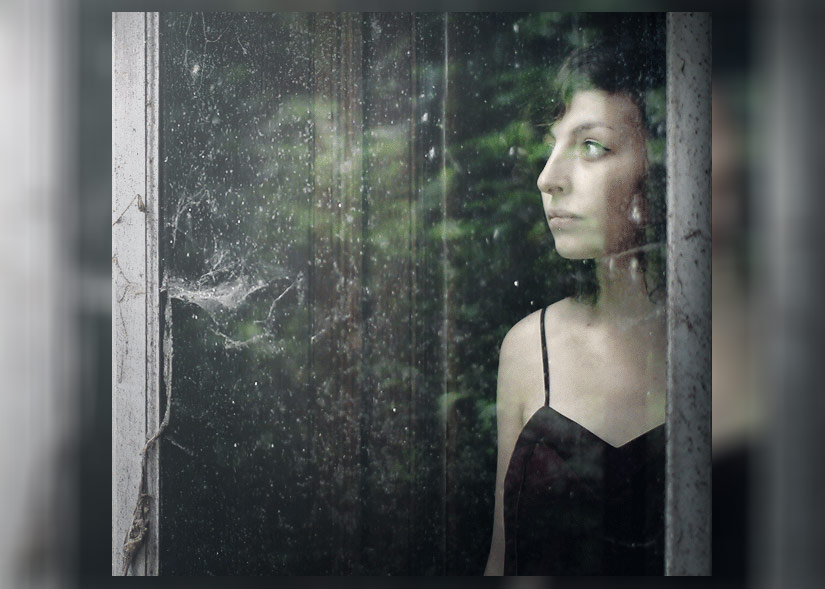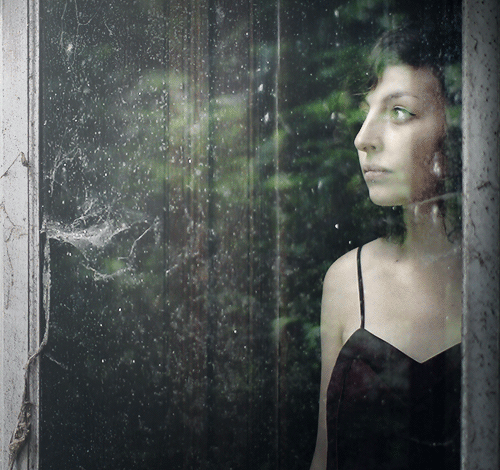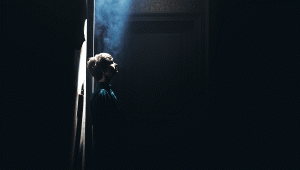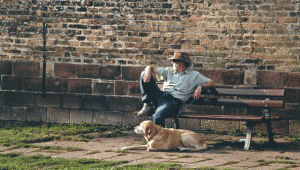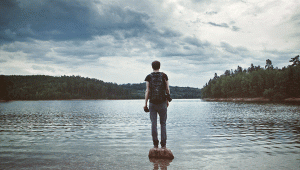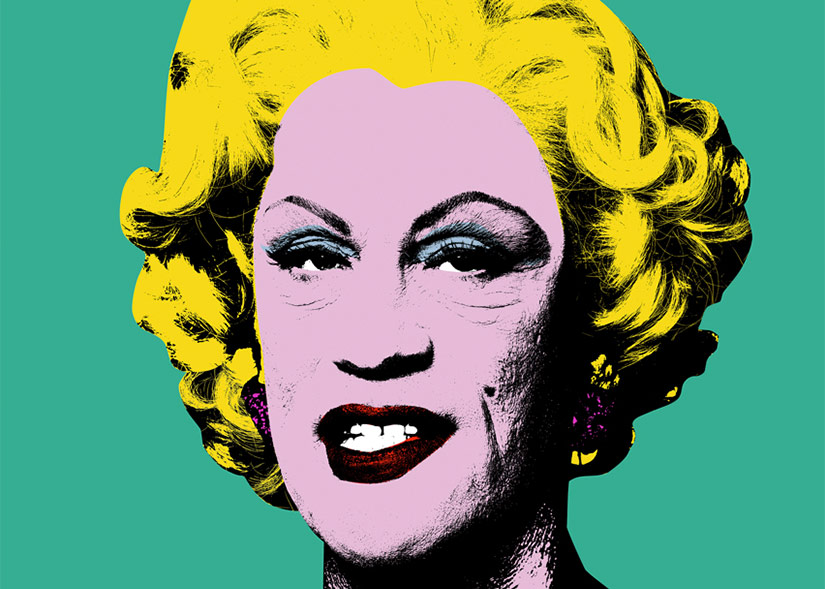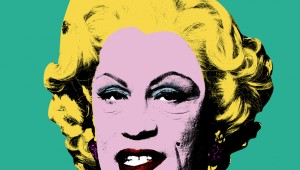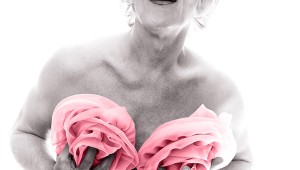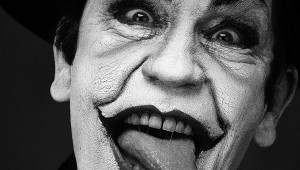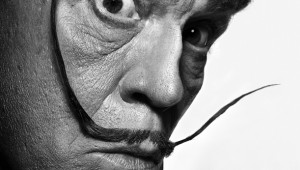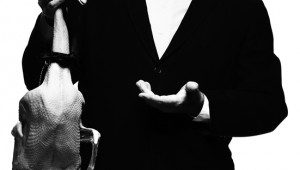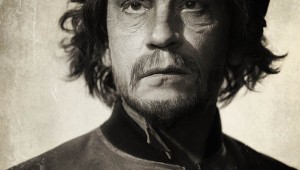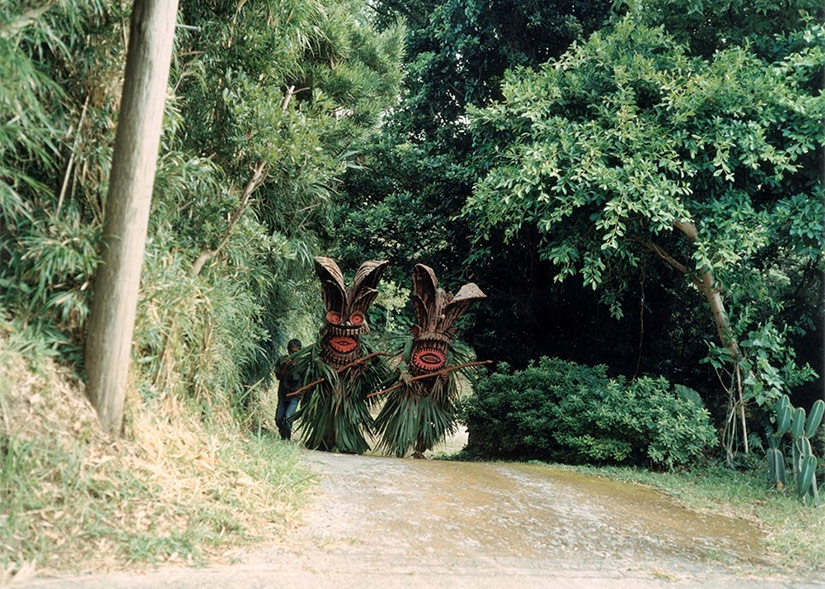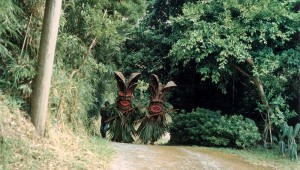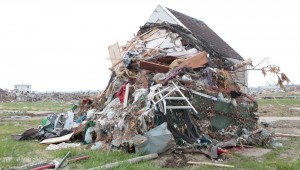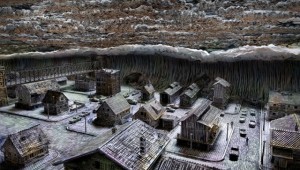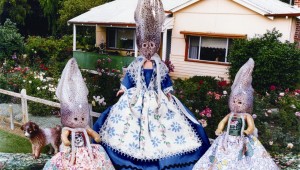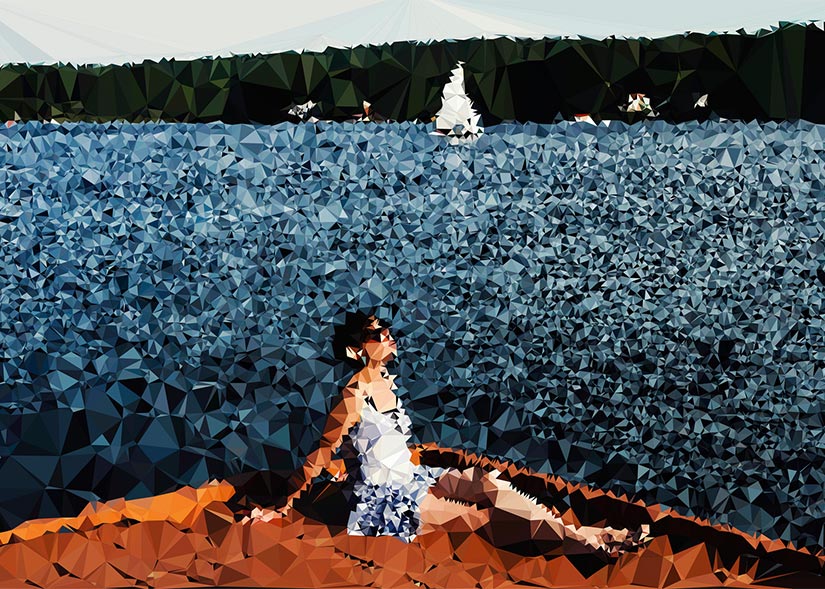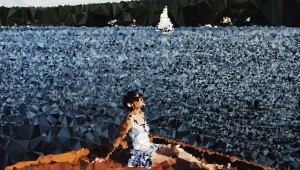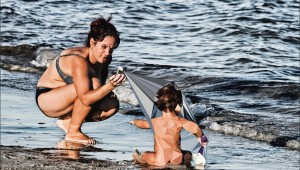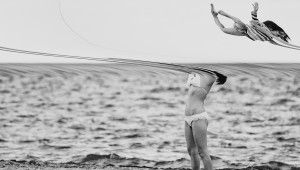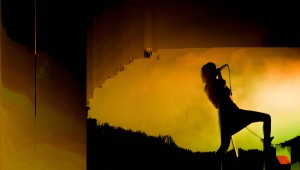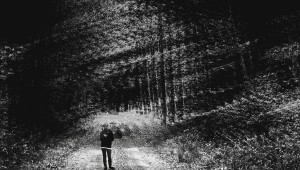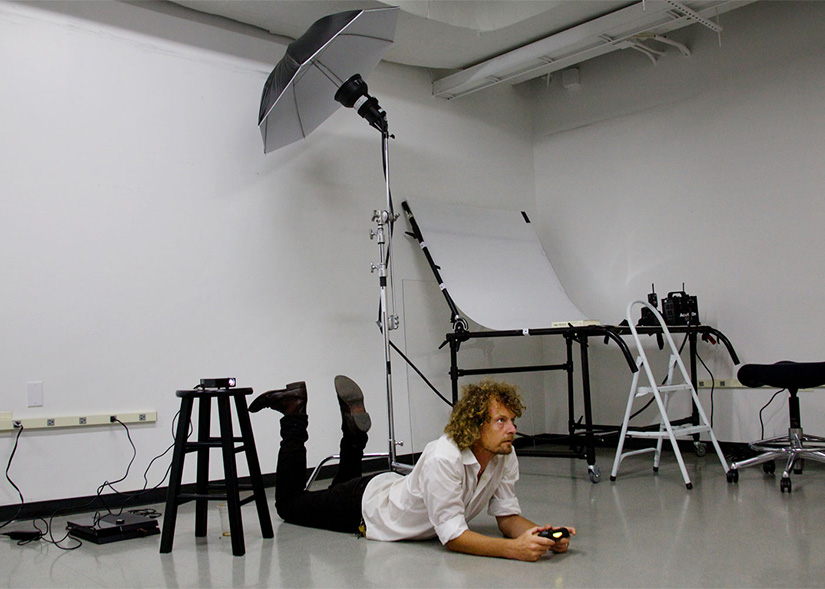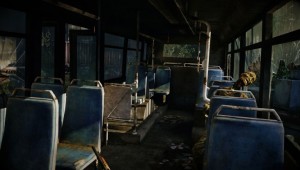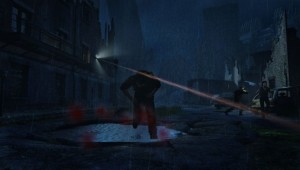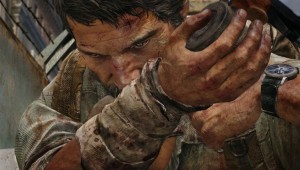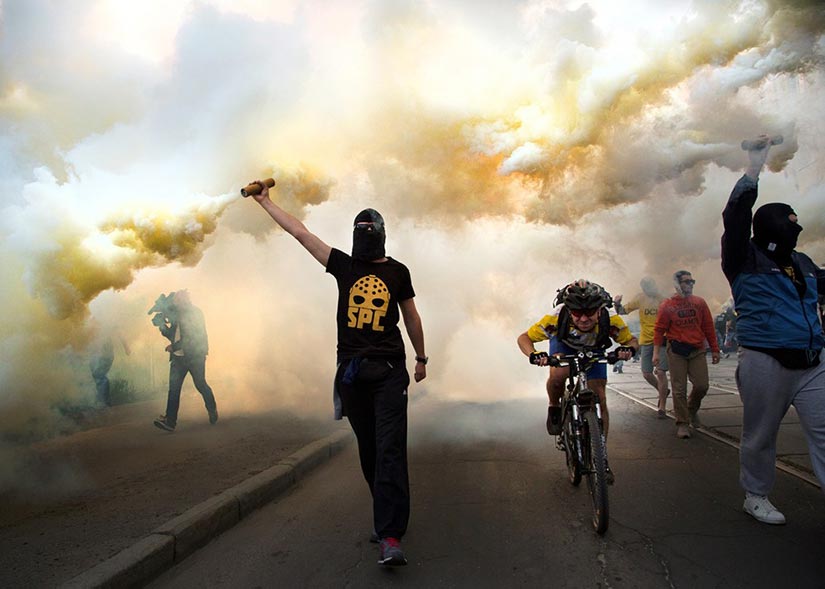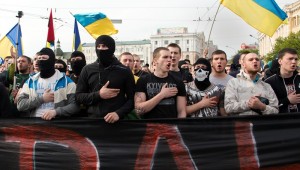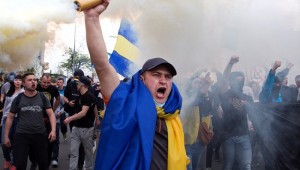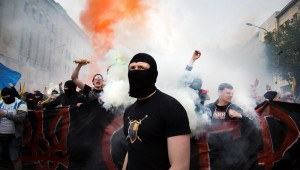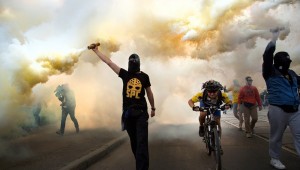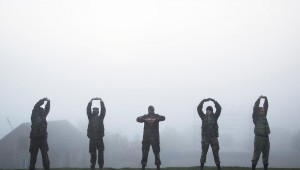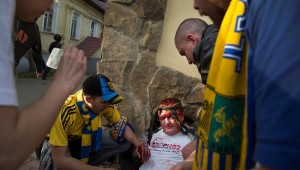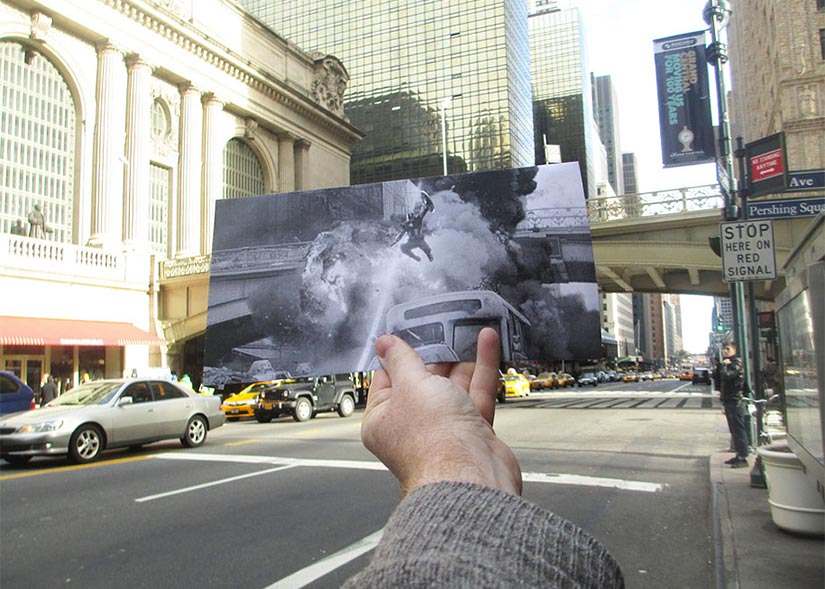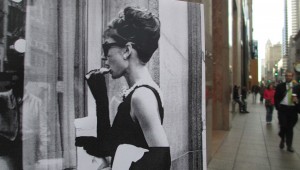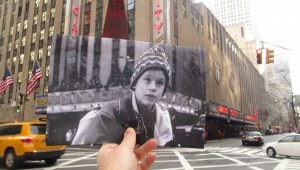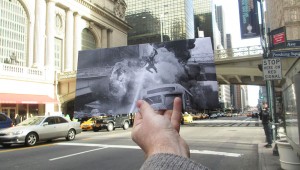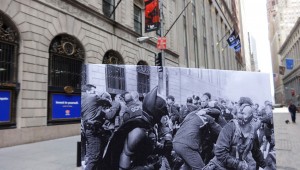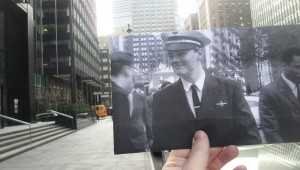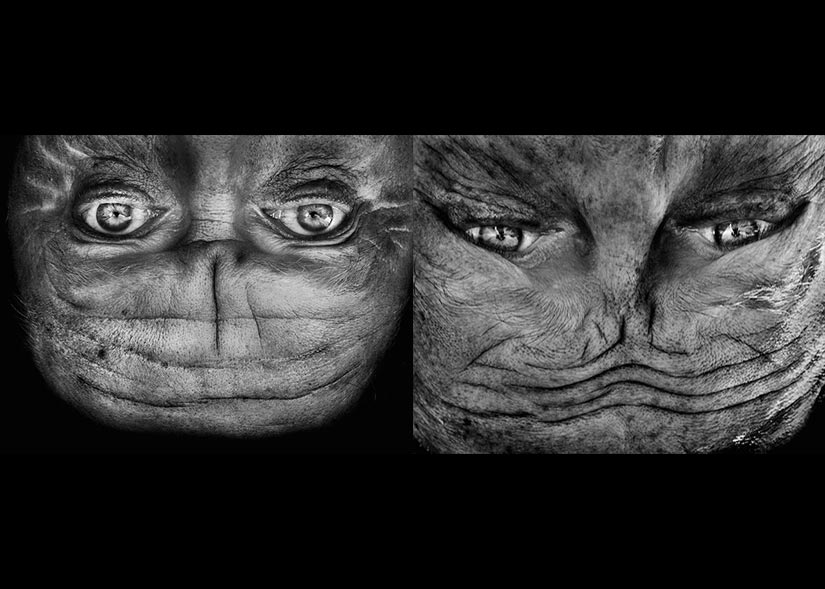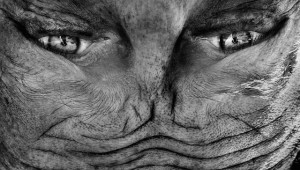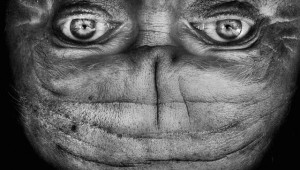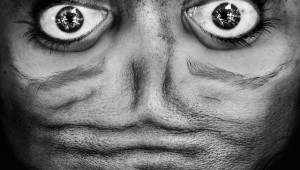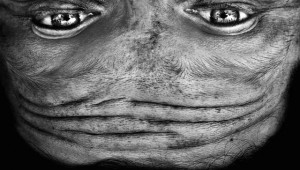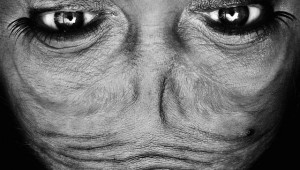Check Out Julien Douvier's Amazing Cinemagraphs
GIFs are god's gift to the internet. Whenever in doubt of what to say in response to somebody, there's probably an accurate and equally entertaining GIF at your disposal. At the same time, they're usually nothing more than just mini-video clips pared down to a few simple frames. Cinemagraphs, on the other hand, are the artistic, photographic version of GIFs that are absolutely astounding.
While perusing the internet this morning, I came across French artist Julien Douvier's collection of cinemagraphs. Just as the portmanteau of cinema and photographs imply, cinemagraphs are photographs collected together with very subtle animation in the frame to give off an extra level of artistry to the photographs. In Douvier's work, they can be as subtle as smoke rising or water rippling, or even something a bit more obvious, like a woman dancing in a frozen crowd or a train speeding by.
I've collected some of my favorite cinemgraphs from Douvier below. For more, check out his website, Tumblr, and Behance pages!
[via PetaPixel]
Sandro Miller's Malkovich, Malkovich, Malkovich: Homage to Photographic Masters
John Malkovich is known for his transformative roles that call for him to play essentially any role. Teaming up with photography Sandro Miller, Malkovich channeled pop culture icons of yesteryear for a photo Miller's latest photo series, Malkovich, Malkovich, Malkovich: Homage to Photographic Masters. In the series, Malkovich re-enacts some famous (and not-so famous) photos of various icons from Hollywood, across art, and even politics, including Jack Nicholson's portrayal of Joker in Batman, Andy Warhol's pop-art painting of Marilyn Monroe, revolutionary Che Guevara, and more.
Check out some of the photos below, and be sure to check out the full exhibition on the Catherine Edelman Gallery website. The exhibition will be on display from November 7th to January 31st. Chicagoans, I highly suggest checking this one out in person!
[via Catherine Edelman Gallery]
Photos from Amsterdam's Unseen Photo Fair
Amsterdam's Unseen Photo Fair, which took place from September 18-21, showcased talent from unknown, underexposed photographers. The fair serves as a means to highlight the aforementioned artists, while also giving photography fans a chance to check out emerging artists, new trends in the photo world, and a chance to add new photos to their collections that could, one day, be worth millions. Participating photographers come from around the world through various galleries from France, Netherlands, Germany, China, Japan, and more. You can find a small sample of the Unseen Photo Fair's collection below; more information from this year's Unseen Photo Fair can be found on the fair's official website.
[via Dazed]
Sabato Visconti's Glitch Photography Look Like Digital Abstractions
Glitch art is pretty awesome. Digital photos are made up of a bunch of codes that create the image that you see, and with glitch art, artists go into the hex code that comprise these photos and edit them around to, obviously, glitch and bug the image into something mesmerizing. It's all completely contemporary, and while I'm not really into contemporary art, I'm a sucker for glitch art, as it manipulates the 0s and 1s that have almost completely replaced everything analog in our lives. One artist/photography, Sabato Visconti, takes glitch photography to the next level with his work. Whether he's manipulating the code himself or putting his photos through a program, his art is pretty impressive and serve as great examples of glitch photography.
You can see a few samples in the gallery below, but be sure to check out his website for more work.
[via PetaPixel]
TIME Photographer Ashley Gilbertson Experimented with The Last of Us: Remastered's Photo Mode
Photos by Ashley Gilbertson.
The Last of Us was one of last generation's greatest video games and one of Sony's most successful and critically-acclaimed PlayStation 3 games, so it only made sense for Naughty Dog to develop an HD Remaster of the game for the PlayStation 4, right? Released earlier this summer, the game featured updated graphics, new modes and maps for the game's multiplayer section, and an amazing Photo Mode. When turned on, gamers can easily pause the game and adjust aperture, framing, composition, filters, and more to create some awe-inspiring "photos" of Joel and Ellie within the game's universe. Naughty Dog even held a photo contest that recently ended that saw gamers share their photos with the rest of the community. Nevertheless, would an actual photographer feel the same taking screen shots in a video game's photo mode the same way they would in the field?
TIME tasked one of its war photographers, Ashley Gilbertson, to create some photos from The Last of Us: Remastered's Photo Mode and write about his experience. From Gilbertson himself:
I initially played the game at home. But after a short time playing it, I noticed I was having very strong reactions in regards to my role as the protagonist: I hated it. When I covered real war, I did so with a camera, not a gun. At home, I’d play for 30 minutes before noticing I had knots in my stomach, that my vision blurred, and then eventually, that I had simply crashed out. I felt like this could well be my last assignment for TIME. [...] So, I moved to the TIME offices where Josh Raab, a contributing photo editor at Time.com and a former gamer, could take the controls and fight his way through the different stages for me. Josh developed a particular style of clearing levels – sneaking up on infected people, strangling them for a while and then stabbing them in the neck. I’d then retake the controls, letting me act more like a photographer. That’s when I started to make better images – the whole experience resembled an actual embed, with someone doing the fighting and me taking photographs.
It's interesting to read about Gilbertson's experience with the game, one in which I absolute adore and would be playing right now if Destiny hadn't just come out last week. You can find more of Gilbertson's The Last of Us: Remastered photos and his full experience on TIME's website.
[via TIME LightBox]
Photographer Kieran Kesner's Photos of Ukraine
While the tumultuous tension across Ukraine has died down a bit over the summer, we all remember the unease that splintered the country during the first half of 2014. New York-based photographer Kieran Kesner was on location to capture some of the tension and unease across Ukraine, capturing photos from both protests and personal portraits of various Ukrainian citizens. I've selected a few from his series for the gallery below, but you can find the complete series and an exclusive interview with Dazed here.
[via Dazed]
FILMography Photo Project Juxtaposes Film Scenes with Real-Life Locations
Christopher Moloney's on-going project, FILMography, finds the photographer and film buff traveling across the world to photograph the real-life locations of various film scenes. That's fun and all, right? But what Moloney does to go the extra mile is print out stills from various films and juxtaposes them with a photo of the site he shoots. Moloney's journey so far has found him traveling to Chicago, New York, Los Angeles, and even across the pond in Rome, Naples, and other locations. Check out some of my personal favorite shots from FILMography below, and follow along with the project on Moloney's FILMography Tumblr.
[via Demilked]
Alienation Photo Set Turns Foreheads into Alien Faces
I love black and white photos more than anything in the world. The focus on sharp contrasts between deep blacks, bright whites, and every spectrum of gray in between is so much more fulfilling than full color photos. Lighting plays a more important role in black and white photography as shadows can transform subjects into something entirely different. Take, for instance, South Africa-based photographer Anelia Loubser's Alienation.
The concept behind the project involves close-up portraits of her subjects' foreheads, then flipping them upside down to create what look like alien faces. As Loubser quotes in her series description, "If you change the way you look at things, the things you look at change," which is clearly made with the series. Check out some of Loubser's Alienation photos below and her Behance page for more from the Alienation set (and other projects as well!).
[via PetaPixel]

